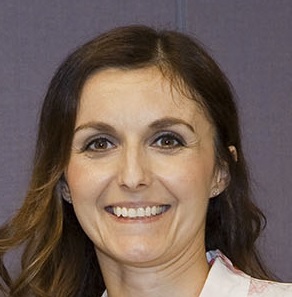
Project Summary:
A diagnosis of dementia results in significant distress for the individual, their family, and wider social network, and places considerable burden on already overstretched health resources. Frontotemporal dementia (FTD) is the second most common type of presenile dementia, after Alzheimer’s disease, resulting in progressive changes in behaviour, language, and thinking.
The ideal time to treat neurodegenerative disease occurs before clinical presentation, at a point when the minimum disruption to the brain has occurred. One of the greatest challenges in clinical neurology therefore is to identify individuals most at risk of developing dementia, prior to the emergence of cognitive impairment or behavioural changes. Here, we address this research challenge by exploring potential biomarkers that allow early identification of dementia, and ensure patients gain access to appropriate disease-modifying treatments.
This research project seeks to optimize the early and accurate detection of FTD using novel neuroimaging analysis techniques. FTD is highly heritable, caused by genetic mutations in one third of cases. Using cutting-edge neuroimaging techniques, we will screen for subtle changes in the overall shape of the brain’s cortex in individuals with increased genetic risk for developing FTD. We will determine signature changes in the shape of cortical and subcortical brain structures in high-risk relative to matched low-risk individuals, and will clarify how these differences in brain structure predict subtle changes in cognition.
Our novel approach will contribute the essential information to guide the screening, clinical diagnosis, and tracking of younger-onset dementia syndromes. With Australia poised on the brink of a dementia epidemic, this project has the potential to significantly address this crucial challenge, optimising our ability to intervene effectively, and to improve the overall prognosis of the individual living with dementia.
Research Outcomes:
We recruited 30 behavioural variant FTD (bvFTD), 30 Alzheimer’s disease (AD) and 30 healthy older Control participants for this study. Participants were matched for age, sex, and years in formal education. Patient groups were matched for level of cognitive and functional impairment. Using Madan’s fractal dimensionality analysis methods, we found significant differences in the surface topology of the two types of dementia. A predominantly right-lateralised frontoinsular profile was found in bvFTD relative to AD, while the reverse contrast implicated a largely posterior parietal and temporo-occipital network. Importantly, we found a robust association between fractal dimensionality of the insula and emotion processing disturbances in bvFTD. This finding converges with a large body of evidence to implicate the insula as one of the key early drivers in the social and emotional symptoms that typify the bvFTD syndrome.
This work is ongoing, and we are currently exploring new exciting applications of this technique. One such avenue is to determine how changes in cortical complexity differ across FTD patients with different underlying genetic mutations (e.g., C9orf72, MAPT, GRN). Given the intense global effort to discover clinically sensitive imaging biomarkers, our findings represent an important step forward in improving the early and accurate diagnosis of FTD.



 The Brain Foundation is the largest, independent funder of brain and spinal injury research in Australia. We believe research is the pathway to recovery.
The Brain Foundation is the largest, independent funder of brain and spinal injury research in Australia. We believe research is the pathway to recovery.